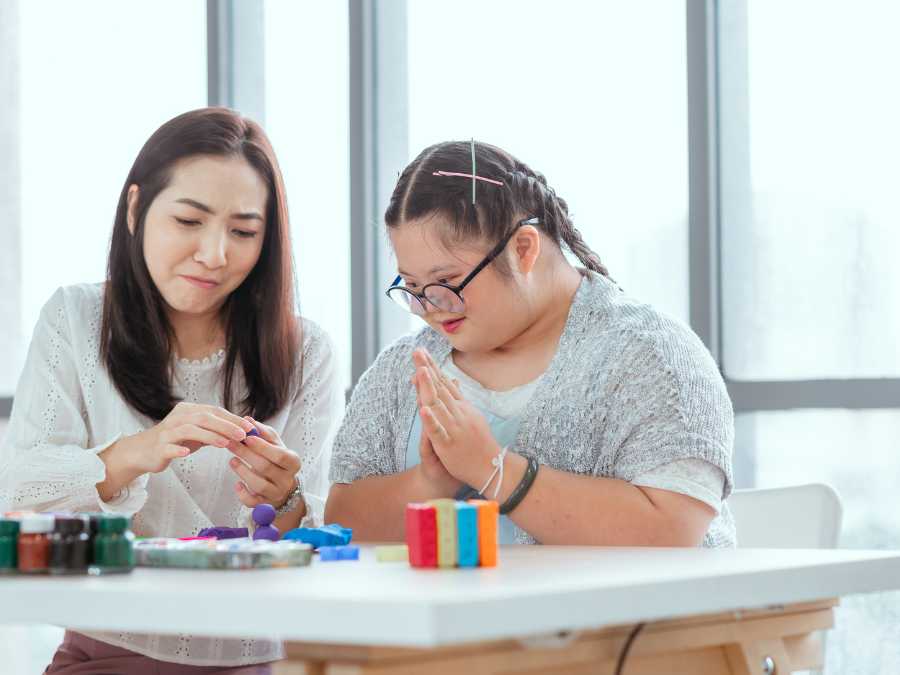Have been thinking of how to manage the daily burnout as a mom? Juggling home care and your career. I want you to know that motherhood is a journey, you can’t get it all done in a day.
There are days I struggle to meet up with my daily activities, the kids and other unplanned activities and these challenges place us under pressure and the next thing is burnout.
Are you feeling exhausted, overwhelmed, or you just want to cry? You are in the right place, we have curated 27 effective ways on how to avoid mom burnout and the early signs of mom burnout you should look out for.
Let us look at some meaningful and creative ways you can manage the pressure and get yourself back avoiding the mom burnout.
27 EFFECTIVE WAYS ON HOW TO AVOID MOM BURNOUT
1. Prioritize Self-Care Daily
Self-care isn’t selfish, it’s essential.
Carving out even 10–15 minutes each day to do something just for you, whether it’s reading, journaling, or simply relaxing, helps replenish your emotional reserves.
When you care for yourself, you’re better equipped to care for others.
2. Ask for Help Without Guilt
 Many moms feel like they should handle everything on their own, but this mindset can quickly lead to burnout.
Many moms feel like they should handle everything on their own, but this mindset can quickly lead to burnout.
Reach out to your partner, friends, or family when you need assistance.
Delegating tasks or simply venting to someone you trust can provide immense relief.
3. Set Realistic Expectations
 Let go of the notion that everything has to be perfect.
Let go of the notion that everything has to be perfect.
Motherhood is unpredictable, and trying to meet impossible standards only fuels frustration.
Be honest about what you can handle each day and give yourself grace when things don’t go as planned.
4. Create a Flexible Routine

A daily routine can bring a sense of order, but it’s important to keep it flexible.
Life with kids is full of surprises, so build in room for spontaneity and rest.
Flexibility allows you to adapt without feeling like you’ve fallen off track.
5. Take Regular Breaks
 Burnout often comes from nonstop giving.
Burnout often comes from nonstop giving.
Short breaks during the day, whether it’s a quick walk, a stretch, or a cup of coffee in peace, can reset your energy and improve your patience and focus.
6. Join a Support Group
 Connecting with other moms who understand your experiences can be incredibly comforting.
Connecting with other moms who understand your experiences can be incredibly comforting.
Whether in person or online, support groups provide a space to share advice, swap stories, and remind you that you’re not alone in your struggles.
7. Practice Mindfulness or Meditation
 Mindfulness helps ground you in the present moment, reducing anxiety and stress.
Mindfulness helps ground you in the present moment, reducing anxiety and stress.
Even a few minutes of deep breathing or meditation can shift your mindset and bring a sense of calm amidst the chaos of daily life.
8. Get Enough Sleep
 Lack of sleep is one of the biggest contributors to burnout.
Lack of sleep is one of the biggest contributors to burnout.
Prioritize rest whenever you can, nap when your kids nap, go to bed early, and avoid overstimulation before bedtime.
A well-rested mind is more resilient and better able to cope with challenges.
9. Eat Nutritious Meals
 Fueling your body with balanced meals keeps your energy stable and your mood steady.
Fueling your body with balanced meals keeps your energy stable and your mood steady.
Skipping meals or relying on junk food may seem convenient but often leaves you feeling sluggish.
Aim for simple, nourishing foods to keep yourself feeling strong.
10. Move Your Body
 Physical activity releases endorphins, which naturally boost your mood.
Physical activity releases endorphins, which naturally boost your mood.
You don’t need an intense workout, dancing around the living room, taking a brisk walk, or stretching in the morning all count and help combat stress.
11. Say “No” More Often
 It’s tempting to say yes to every invitation or request, but overcommitting drains your energy.
It’s tempting to say yes to every invitation or request, but overcommitting drains your energy.
Politely declining activities or responsibilities that don’t serve your well-being helps you protect your time and peace of mind.
12. Unplug from Technology
 Constant notifications, social media comparisons, and information overload can add to mental exhaustion.
Constant notifications, social media comparisons, and information overload can add to mental exhaustion.
Designate screen-free times during the day to disconnect and focus on the present moment with your family or yourself.
13. Set Boundaries
 Healthy boundaries are crucial for preventing burnout.
Healthy boundaries are crucial for preventing burnout.
This might mean setting limits on your work hours, asking family members to respect your downtime, or making your personal needs clear.
Boundaries protect your mental and emotional space.
14. Pursue a Hobby or Passion
 Having something that brings you joy outside of motherhood is vital.
Having something that brings you joy outside of motherhood is vital.
Whether it’s crafting, writing, gardening, or learning a new skill, dedicating time to your interests helps you stay connected to your identity beyond being a mom.
15. Delegate Household Tasks
 You don’t have to do it all. Sharing chores with your partner or assigning age-appropriate tasks to your kids can lighten your load and teach your family the importance of teamwork and responsibility.
You don’t have to do it all. Sharing chores with your partner or assigning age-appropriate tasks to your kids can lighten your load and teach your family the importance of teamwork and responsibility.
16. Practice Gratitude
 Keeping a gratitude journal or taking a moment each day to reflect on what you’re thankful for helps shift your focus from what’s overwhelming to what’s uplifting.
Keeping a gratitude journal or taking a moment each day to reflect on what you’re thankful for helps shift your focus from what’s overwhelming to what’s uplifting.
Gratitude has been shown to reduce stress and increase feelings of happiness.
17. Get Fresh Air
 There’s something incredibly restorative about stepping outside, even for a few minutes.
There’s something incredibly restorative about stepping outside, even for a few minutes.
Fresh air, sunshine, and a change of scenery can instantly lift your spirits and clear your mind, making it easier to handle the demands of your day.
18. Limit Comparisons
 Every mom’s journey is different, and comparing yourself to others (especially on social media) can breed unnecessary self-doubt.
Every mom’s journey is different, and comparing yourself to others (especially on social media) can breed unnecessary self-doubt.
Focus on your family’s unique rhythm and trust that you’re doing your best, even if it looks different from someone else’s path.
19. Celebrate Small Wins
 Motherhood is filled with small victories, whether it’s getting through a tough bedtime or finally finishing the laundry.
Motherhood is filled with small victories, whether it’s getting through a tough bedtime or finally finishing the laundry.
Celebrate these moments and give yourself credit for all you accomplish, even when it feels mundane.
20. Stay Connected with Friends
 Maintaining adult friendships provides a crucial outlet for laughter, conversation, and support.
Maintaining adult friendships provides a crucial outlet for laughter, conversation, and support.
Even short phone calls, texts, or occasional meetups help remind you that you’re more than “just a mom.”
21. Consider Professional Support

If feelings of exhaustion or sadness become persistent, seeking help from a therapist or counselor can provide valuable tools and guidance.
Professional support is a powerful step toward long-term well-being and resilience.
22. Involve Kids in Tasks
 Turning chores into family activities can make tasks more enjoyable and reduce your burden.
Turning chores into family activities can make tasks more enjoyable and reduce your burden.
Kids can help with cooking, tidying up, or setting the table, and it fosters their sense of responsibility and teamwork.
23. Have Alone Time
 Quiet, uninterrupted time, whether it’s early in the morning or after the kids are asleep, helps you reconnect with yourself.
Quiet, uninterrupted time, whether it’s early in the morning or after the kids are asleep, helps you reconnect with yourself.
Alone time is a chance to reflect, relax, and reset without any distractions.
24. Plan Occasional Getaways

A mini escape, even just for a day, offers a refreshing break from routine.
Whether it’s a solo spa day, a weekend with friends, or a family day trip, new surroundings can do wonders for your energy and outlook.
25. Practice Positive Self-Talk
 The way you speak to yourself matters. Instead of criticizing yourself for mistakes or perceived shortcomings, practice speaking kindly and encouragingly.
The way you speak to yourself matters. Instead of criticizing yourself for mistakes or perceived shortcomings, practice speaking kindly and encouragingly.
Positive affirmations can strengthen your confidence and resilience.
26. Stay Hydrated

It sounds simple, but drinking enough water keeps your body functioning well and prevents fatigue.
Keep a water bottle handy and sip throughout the day to stay hydrated and alert.
27. Keep Perspective
 When challenges arise, remind yourself that tough days and phases don’t last forever.
When challenges arise, remind yourself that tough days and phases don’t last forever.
Keeping the bigger picture in mind can provide comfort and help you navigate the ups and downs of motherhood with more ease.
WHAT ARE THE EARLY SIGNS OF MOM BURNOUT
1. Constant Fatigue
 One of the clearest early signs of mom burnout is unshakable fatigue.
One of the clearest early signs of mom burnout is unshakable fatigue.
This goes beyond normal tiredness from a busy day; it’s a deep exhaustion that lingers even after a full night’s rest or a rare quiet moment.
You may find yourself dragging through each day with no real sense of refreshment, no matter how much you try to rest.
It feels as if your body and mind are both running on empty, making even simple tasks seem monumental.
2. Irritability and Mood Swings
 When you’re burning out, your emotional resilience takes a hit.
When you’re burning out, your emotional resilience takes a hit.
You might find yourself snapping at your kids, partner, or even strangers for the smallest reasons.
Mood swings become common, one moment you might feel okay, and the next you’re overwhelmed with frustration or sadness.
This emotional instability is often linked to the physical and mental overload you’re carrying, and it’s a clear indicator that you need a break.
3. Feeling Overwhelmed by Routine Tasks
 Things that once felt like part of your normal rhythm, making breakfast, tidying the house, or helping with homework, suddenly feel like massive hurdles.
Things that once felt like part of your normal rhythm, making breakfast, tidying the house, or helping with homework, suddenly feel like massive hurdles.
Burnout turns everyday responsibilities into heavy burdens, and the constant mental list of things to do can feel suffocating.
You might feel like you’re drowning in to-dos that never end, which only adds to your stress and sense of defeat.
4. Sleep Disturbances

Ironically, burnout can ruin the very thing you need most: sleep.
Even when you’re dead tired, your mind might race at night, replaying the day or worrying about tomorrow.
This can lead to insomnia or restless, low-quality sleep.
On the flip side, some moms may find themselves oversleeping but still waking up feeling exhausted, a clear sign that emotional fatigue is at play.
5. Increased Forgetfulness
 Mental fog or “mom brain” can be amplified during burnout.
Mental fog or “mom brain” can be amplified during burnout.
You might miss appointments, forget important tasks, or lose track of conversations.
This forgetfulness isn’t just about being busy, it’s your brain signaling that it’s overloaded and struggling to keep up.
Feeling scattered or disorganized can add to your frustration and deepen the cycle of burnout.
6. Withdrawal from Social Activities

If you notice that you’re dodging social events or pulling away from friends and family, even ones you usually enjoy, that’s a red flag.
Burnout can make socializing feel draining instead of uplifting.
You may find it hard to muster the energy or enthusiasm to engage, preferring isolation because it feels easier, even if it also feels lonely.
7. Loss of Enjoyment
 Another concerning sign is a loss of interest in activities you used to love, whether that’s reading, crafting, exercising, or watching your favorite show.
Another concerning sign is a loss of interest in activities you used to love, whether that’s reading, crafting, exercising, or watching your favorite show.
Life may start to feel dull or monotonous, and you might feel like you’re just going through the motions.
This emotional numbness is a way your body signals that it’s overwhelmed and needs restoration.
8. Physical Aches and Pains
 Your body often tells you what your mind is feeling.
Your body often tells you what your mind is feeling.
Tension headaches, stiff shoulders, backaches, or stomach issues can all be physical symptoms of stress and burnout.
You might find yourself at the doctor’s office for recurring complaints that don’t have a clear medical cause often because they’re rooted in emotional strain.
9. Guilt and Feelings of Inadequacy
 Many moms experience guilt from time to time, but during burnout, that guilt can become relentless.
Many moms experience guilt from time to time, but during burnout, that guilt can become relentless.
You might constantly feel like you’re not doing enough for your children or family, even when you’re working tirelessly.
This toxic guilt often comes hand-in-hand with feelings of inadequacy and self-doubt, making it even harder to care for yourself.
10. Emotional Detachment

Perhaps one of the most concerning signs is feeling emotionally detached or numb.
You might go through the motions of daily life feeding, bathing, playing but feel distant from your kids and loved ones.
This detachment is your mind’s way of coping with overload, but if left unchecked, it can strain your relationships and deepen your sense of isolation.
Motherhood is a beautiful journey, but it can also be incredibly demanding and feeling overwhelmed from time to time is completely normal.
Recognizing the early signs of mom burnout is a powerful first step toward protecting your well-being and maintaining balance in your daily life.
Taking care of yourself isn’t a luxury, it’s a necessity for both you and your family.
By staying mindful of your limits and making self-care a priority, you’re not just surviving motherhood, you’re setting the stage to truly thrive.
You deserve rest, support, and moments of joy along the way.
|
ReplyForward |

Leave a Reply